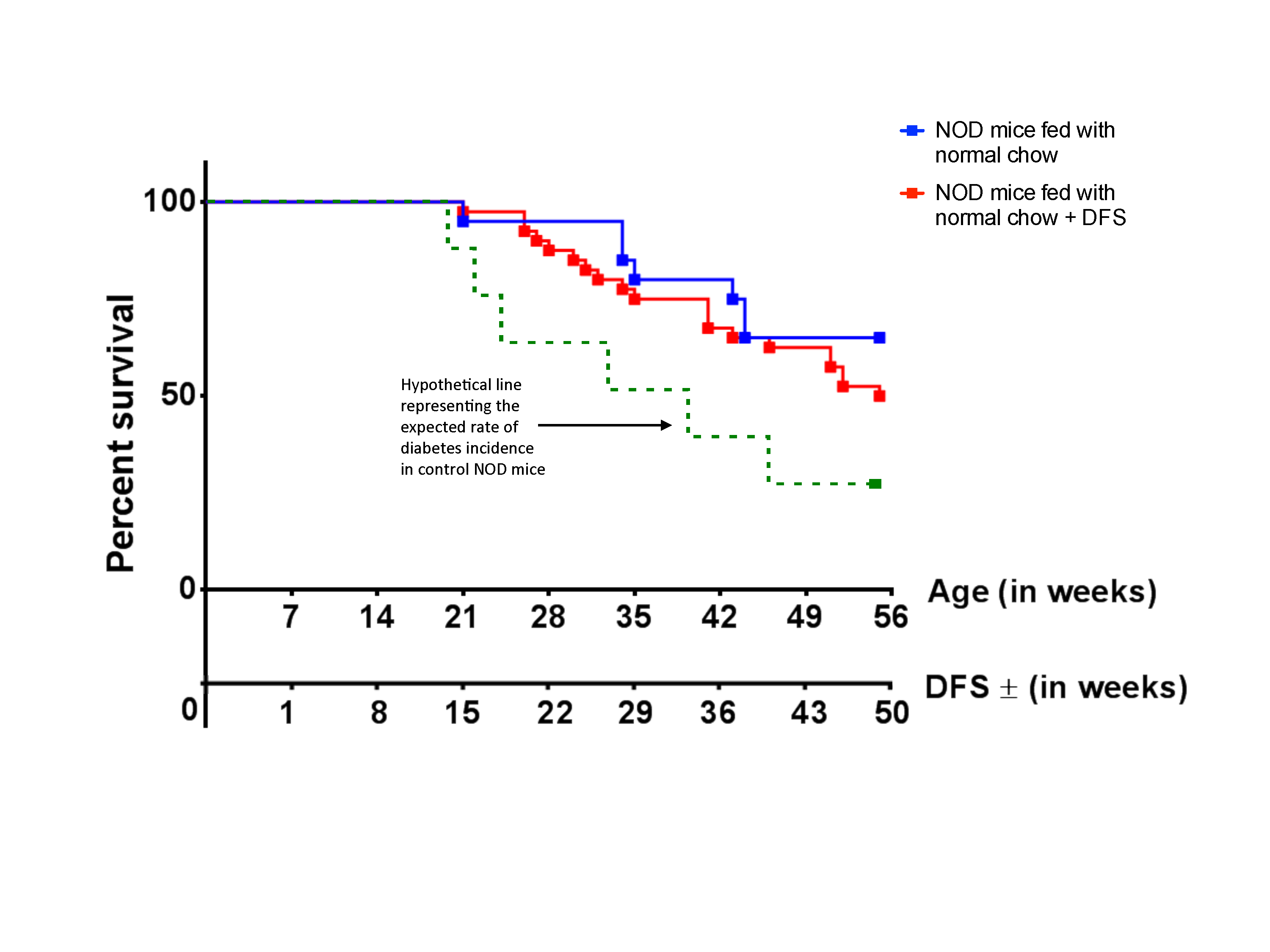Poster Presentation Australian Diabetes Society and the Australian Diabetes Educators Association Annual Scientific Meeting 2014
Oral Iron Chelation by Deferasirox (DFS) Does Not Impact the Autoimmunity of Type 1 Diabetes and Blood Collection Associates with Decreased Incidence of Diabetes. (#214)
Background: DFS is an oral iron chelator used to treat chronic iron overload. It increases hypoxia-inducible factor-1α (HIF-1α) proteins. We previously showed that male non-obese diabetic (NOD) mice that lack β-cell HIF-1α (βHIF-NOD) have increased diabetes incidence versus control NODs. We hypothesized that increasing HIF-1α with DFS would decrease diabetes incidence.
Aim: To investigate the effects of DFS on development of type 1 diabetes (T1D) and its autoimmunity by the transfer of splenocytes from diabetic NOD mice.
Methods: 7 week-old female NODs receive chow±DFS for up to 50 weeks with weekly random-fed glucose measurement. If diabetes developed, splenocytes were transferred into NOD-SCID recipients via tail-vein injection. Pancreases were examined for insulitis which was scored 0-4 in a preliminary sample of N=2 mice per group in 12 islets per mouse.
Results: The diabetes incidence between the control and DFS fed NOD mice was not as expected with 35% in controls and 50% in DFS fed NOD mice, p=ns. The percentage of islets for each score (0/1/2/3/4) for controls were 8/42/25/17/8 and for DFS fed NODs it was 33/50/17/0/0. 100% of NOD-SCID recipients that received splenocytes from either group developed diabetes by day 53. This shows that in the mice that developed diabetes, in both groups, it was auto-immune.
Conclusion: There was no difference in incidence of diabetes in NOD mice fed with DFS. However, both groups had markedly lower than expected rates of diabetes. We postulate that this could be related to weekly venesections for blood glucose testing which removes iron in both groups. Further studies are required to test whether there is an effect of DFS in mice that are not subjected to blood glucose testing.
